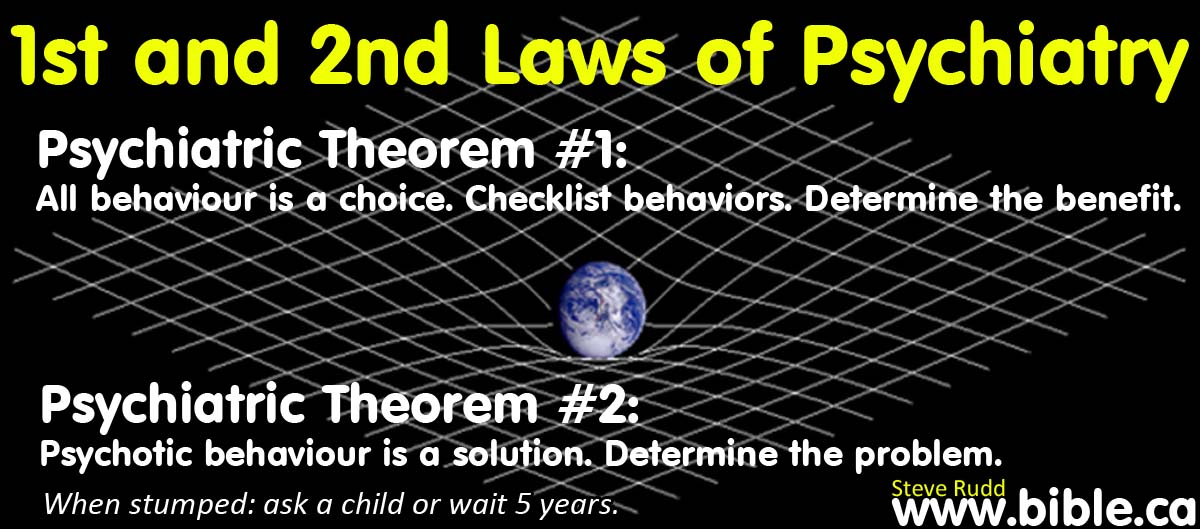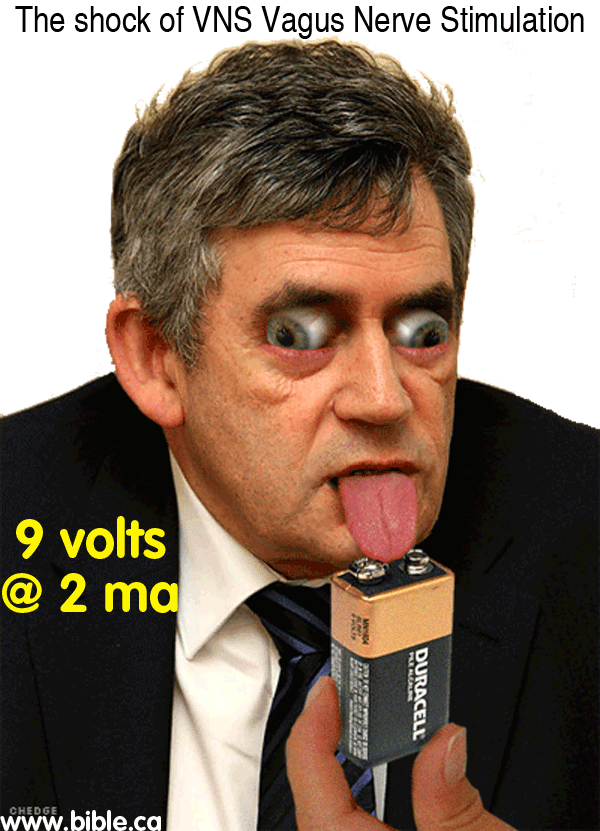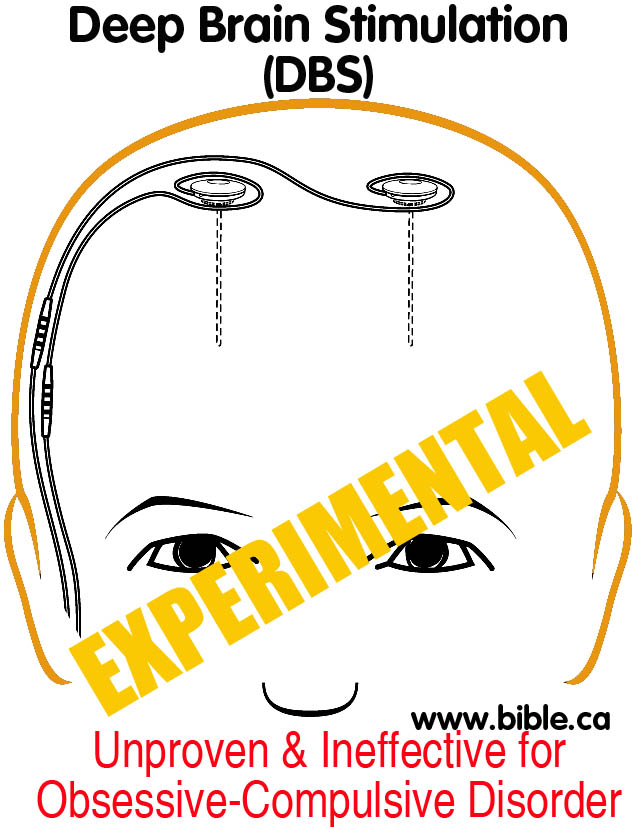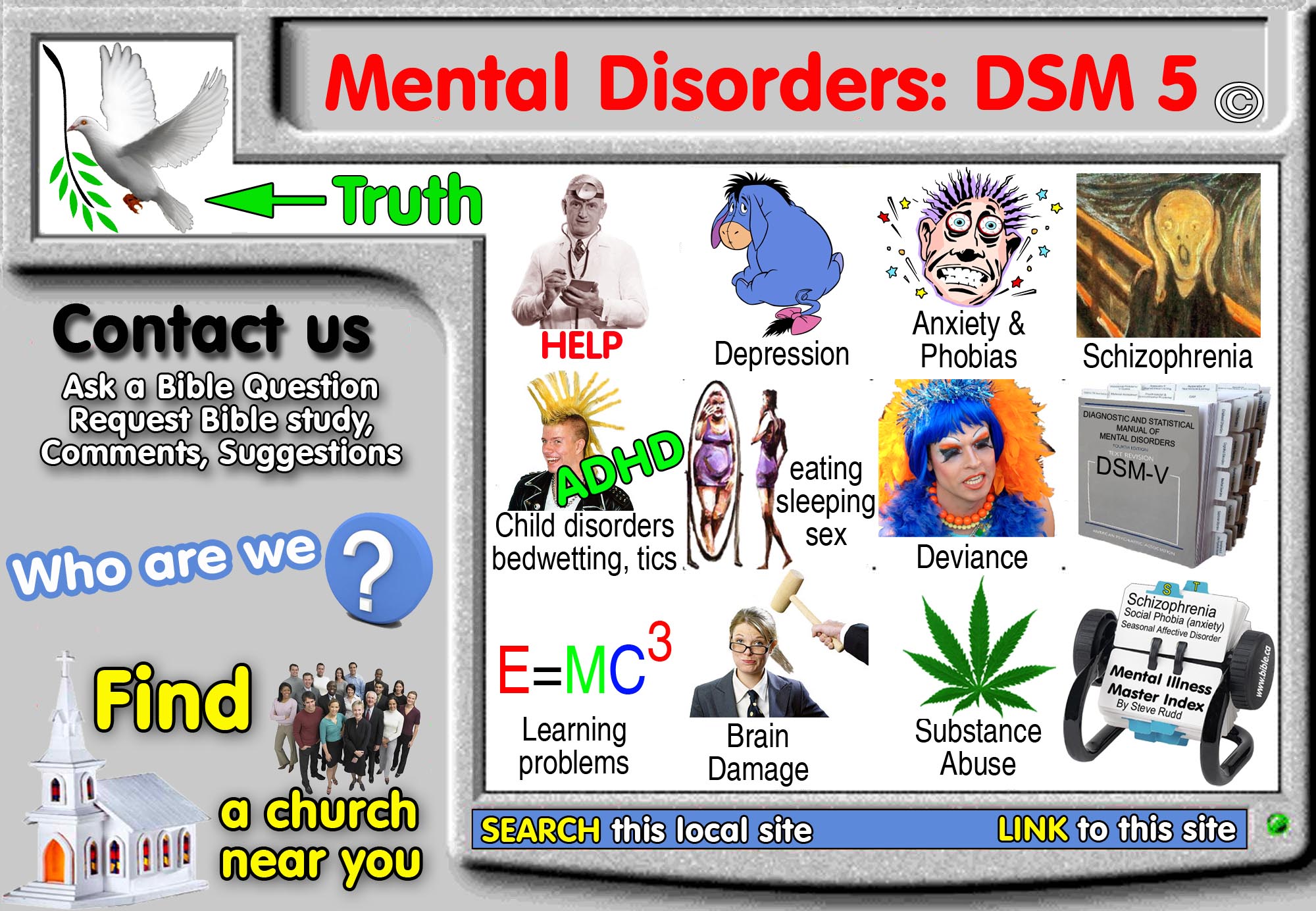The
case of "Twitchy"
(Tourette's syndrome, Obsessive-compulsive disorder OCD, Ticks, blinking,
grunting, nervous habits)
Casebook of Biblical Psychiatry © Version 7
|
Based upon Real Mental Illnesses |
Casebook of Biblical Psychiatry© brings the principles of Biblical Psychiatry to life based upon real-world cases and familiarizes Christians with different types of situations. This practical companion volume to Biblical Psychiatry© includes not only diagnosis, but also in-depth discussions by experienced Christians for Biblical approaches to treatment. This meticulously detailed volume of dynamic real-life case studies is simply a "must read" for all clinical Psychiatrists, mental health care professionals and Christians interested in expert opinion on today's treatment approaches. Psychiatric students, educators, and practitioners—as well as social workers, nurses, medical physicians, and interested laypersons—will find this unique volume of inestimable value in their day-to-day work.
|
|
|
|
|||||
|
The case of (Tourette's syndrome, Obsessive-compulsive disorder OCD, Ticks, blinking, grunting, nervous habits) |
|
||||||
|
|
|||||||
|
|
The case of "Twitchy" |
|
|||||
|
|
Biopsychiatric labels DSM-5 |
Tourette's syndrome F95.2, OCD F42 |
|||||
|
|
Checklist Behaviours DSM-7 |
Lack of Self-control, failing to take thought of that which is right in the sight of all men, bodily lust fulfillment through tics |
|||||
|
|
Insights MMPI-7 |
|
|||||
|
|
Quick Pick EDS-7.1 |
No self-control: unnatural thought addictions and lusts: ticks etc. Psychologically induced biological lusts. |
|||||
|
|
Self-disablement EDS-7.2 |
Can become unemployable |
|||||
|
|
Chemical imbalance EDS-7.3 |
No. They were never prescribed psychiatric drugs. |
|||||
|
|
Benefits EDS-7.4 |
Fun, entertainment, relief from boredom and monotony: EDS-7.4.2 Attention seeking, Pride, Praise, Honour, Fame: EDS-7.4.3 Revenge: EDS-7.4.8 Satisfaction of fulfilling a bodily/psychological lust. |
|||||
|
|
Monetary EDS-7.5 |
Can be used as a smokescreen of self-disablement for welfare. |
|||||
|
|
Annoyance Scale EDS-7.6 |
Medium |
|||||
|
|
Diagnostic Laws EDS-7.7 |
Law of Narcissistic Behaviour Choice (NBC) EDS-7.7.1.NBC Law of Pediatric Multifarious Obfuscation (PMO) EDS-7.7.12.PMO Law of Misfortune Culpability Aversion (MCA) EDS-7.7.15.MCA. |
|||||
|
|
Determine the Problem |
Lack of desire to change, will and self-control |
|||||
|
|
Ask a Child: |
He is the best clown I have ever seen. EDS-7.7.12.PMO |
|||||
|
|
5 years later EDS-7.7.LPT |
Once Jose learned his tics were not caused by defective DNA or bad brain chemicals, He forced himself to stop and was tic free in 90 days. |
|||||
|
|
|
||||||
The case of "Twitchy" (a tic junkie)
As a young boy in Peru, Jose loved books and would look at the photos, but not understand the story because most of them were in English. His favorite book "Stuart Little" was given to him one Christmas and all he knew was that the story was about an adventuresome "twitchy" little mouse who lived in New York city in America. A very bright young boy, his mother could see his strong desire to learn and get an education. Jose's mother longed for a better life for her children, so after winning the annual immigration lottery, they immigrated to USA. It was a new life with new beginnings for Jose and parents when they got off the boat at Ellis Island New York. It was a dream comes true. They moved to Ft. Myers, Florida where it was the warm climate they were used to in their home country of Peru. Jose's mom told him that he was going to school where he could learn to read his favorite book himself! But Jose did not fit in very well in his new social environment. Jose had always blinked a lot from age 4, but it was getting worse. He also started making grunting sounds. He began to twitch his nose like the mouse hero in his favorite book. When his mother asked him why he was grunting, he replied that he was merely humming a tune that he could not get out of his head. Being a rhythmic person, Jose was not merely humming to the same tune, he was also grunting out the percussion. Jose's father would blink and suck air through his teeth when he was angry.
The kids at school did not take to Jose very well and he was somewhat socially isolated. Jose felt he really didn't have many true friends. Although he was bullied he was a positive person and did quite well in school and was able to overcome the initial language barrier with English as a second language and rise to the top of the class.
Throughout high school, Jose began to develop physical twitches that were repetitive and included loud grunts and squeals. It felt like something inside was forcing him to act out the ticks. He would hold his breath until it felt just right to act out the tick. However, he was able to delay them or suppress when out on a date with a new girlfriend.
He became a Christian and attended three times a week with a Bible believing church. His occasional outbursts of foul language were an embarrassment in church. Jose became quite financially successful. He finished his MBA and was hired by a major stock brokerage company. When he got married, the ticks had gotten worse, but his wife noticed that they stopped the moment he fell asleep. She also noticed that when his mind was pre-occupied watching TV or watching a live on stage theatre production, that he was able to control his "nervous habits". She noticed that he was able to control his ticks in the parent/teacher meetings. He told her that he was able to completely control his ticks in important Job interviews.
However, sometimes when he was frustrated at people, he would randomly blurt out a vulgarity or swear word.
Jose also had some "obsessive compulsive" habits like arranging all the wrenches in his garage tool chest in perfect order. If someone opened a drawer and moved it an inch, he would move it back. He would also arrange his shoes in the closet in a particular order based on style and colour. If someone swapped two pairs in the little cubby holes, he would switch them back. He also carried around a lip balm and repeatedly applied it to his lips. His cell phone was always in his pocket or on his pillow when he slept. If he left the house without his lip balm or cell phone, he would turn around and go home to get them.
She urged him to seek professional help, which he did out of love for her. He was diagnosed with Tourette's Disorder and Obsessive Compulsive Disorder (OCD). He was told by the psychiatrist that he had a genetic disease that was outside his control and that he had a chemical imbalance in the brain with abnormal neuron activity.
He began to blame God for his disease and left the church and eventually became bitterly anti-Bible.
Jose checked himself into a special clinic and paid to get fMRI scans of his neuron activity. Sure enough, the fMRI scans confirmed that strange stuff was happening inside his brain. He meditated on how he felt as biological misfit because of his defective DNA. He found comfort and solace that he lived now and not 200 years in the future, when atheistic Darwinism had final conquered religion and standard DNA pre-natal screening for Down's and Tourette's syndromes meant he would have been culled from humanity like a defective puppy by the breeder because he did not conform to the new Eugenics breed standards of humanity. He resigned himself to the fact that he was going to have to live with Tourette's for life, but he became concerned about passing the genetic disease onto his children. Although Ritalin has had mixed results on children, He was told that this is something that psychiatric drugs cannot fix now he is an adult.
|
He found some hope that a new procedure called, "Deep Brain Stimulation" would correct the random electrical short circuits in his brain. But he was a little worried about having two meat thermometers pushed into his brain, so he decided to just live with his disease. |
Jose successfully attained the American dream he could never have known in his home country of Peru. He has a Lexus, 2 Harley Davidson Motor bikes even a private Lear jet. His spontaneous twitches, grunts and contortions are actually the life of the party and a great source of entertainment for his many friends. He has found inner peace within himself that he will twitch like his hero, the little storybook mouse he called "twitchy", for the rest of his life. He adopted three children from Peru and reads to them all from the book he loved as a kid himself.
A Christian named James happened to see Jose in Starbucks and brazenly said, "What if I could cure you of your Tourette's in 6 months? Would that interest you?" Stunned Jose paused a moment and said, "Sure!" James handed Jose a series of quotes that showed there is no known biological cause for Tourette's syndrome and everything he had been told about his "genetic disease" was a lie. Just start resisting those "irresistible urges" to perform the tics and at the end of 6 months you will be tic free. You have been lied to by psychiatrists who have robbed you of any hope of a cure because they say it is 100% biological and ridicule Christians like myself that know it is all a matter of will power and self-determination." Jose ripped the paper out of James' hand, swore at him and walked away in a rage of furious anger. A week later Jose found the paper on the floor of his car and read the quotes. He was stunned by what he read and did not believe it. He went to the university medical library and looked at the graduate level medical reference textbooks and sure enough James spoke the truth. He determined to try to resist his ticks and at first it drove him out of his mind, but after a week, he noticed a clear change. By the end of three months he was tic free. He thanked God, went to church and confessed his sin of rebellion against God and was restored. He then became an activist to warn others about the lies of biopsychology.
Discussion:
Jose is an addict, a tic junkie. Just as a heroin addict's body craves the drug, Jose craves his tics. Although fundamentally a choice the spirit craves, the mind can actually develop a physiologically pleasing feeling. This is known as a psychologically induced biological lusts which can be controlled the same as true biological lusts like the sex drive and hunger. However just as tics are initiated by repeated choice, Tourette's is "cured" by free-will power alone.
Jose must be commended for his resolution to find acceptance for his life situation. Considering the devastatingly negative message his psychiatrist gave him about his ticks having their etiological origin in inherited DNA and he will have Tourette's for life. The "chemical imbalance" for life news has sent many a psychiatric patient into a depression and even suicide. So Jose gets a gold star for denying self, being content with his life situation (ticks for life), accepting his disease for what it is and finding happiness and contentment in spite of all this.
The problem with this whole story, is that he has been lied to by the psychiatrist. The truth is like the joke, "How many psychiatrists does it take to change a light bulb…. Any one of them, but he really has to want to change [it]". Just like Dorothy possessed the power to get home the entire time she sought the answer on the Yellow Brick road, so too Jose had the power within himself his entire life to cure himself of Tourette's and OCD. The difference is that Dorothy was finally told by the good witch to simply click her heels together three times, but no one in the entire mental health industry ever told Jose the cure to Tourette's/OCD was his own will power and self-control. Jose believed the lie that ticks are involuntary and outside of his ability to control like an epileptic seizure.
Why did Jose believe he had a defective brain with bad DNA?
- He believed the lies of the mental health industry.
- He was unaware that top scientists admit they have no idea what the biological etiology it.
- He was unaware that the bad DNA etiology was theoretical, not an observable scientific fact.
- He wrongly assumed that his father's rapid blinking and tics proved a genetic link, when in fact none existed. The truth is that nervous habits can "run" in families the same way religion does. Both are sometimes learned behaviours that are imitated.
- He believed the lie that the fMRI scan indicated he had unusual brain activity. In fact fMRI measures blood flow and nothing more. It is assumed that this blood flow corresponds with electrical activity.
The history of psychiatry is a path of destruction of life and damage to the human body whose cures are summed up in physical disablement of the body through surgery, shocks and drugs. Biopsychiatry is rooted in atheism which denies many has a spirit separate from the body and sees all human behaviour rooted in the body, not the spirit. Look at the cost Jose paid for believing the lies of chemical psychiatry:
- He viewed himself as a misfit with defective DNA
- He lost hope of ever being normal.
- He chose never to have children of his own fearing his bad DNA would be passed on to his children.
- He had to endure a lifetime of annoying and bothersome and distracting behaviour that interfered with a normal lifestyle.
- He believed the lies of the atheist Psychiatrist and gave up his eternal salvation.
Tourette's syndrome, like Obsessive-compulsive disorder (OCD), is a nervous habit in full control of human will. It is a freewill choice not the involuntary consequence of defective DNA, bad brain wiring or a chemical imbalance of the brain. In psychiatric discussion circles, there is little difference between Tourette's syndrome and Obsessive-compulsive disorder OCD. Both are cross diagnosed by biopsychiatrists and there is a very blurry line of distinction. Tourette's syndrome and OCD share a quality with schizophrenia, namely, that there are no medical tests and diagnosis is based solely on behaviour observation. Just as you cannot diagnose a schizophrenic unless he talks, neither can you diagnose Tourette's or OCD unless you watch them. It is not a medical matter for doctors, but a personal matter of learning self-control over one's thoughts and actions.
Nervous habits are "though addictions" sometimes come to the surface in odd and unnatural behaviours that range from over blinking to switching on and off the bedroom light for 30 minutes "until it felt right". Sometimes nervous habits are obsessive thinking converted into obsessive actions. For example, you keep wondering if you turned the alarm system on while you lay in bed then finally get up, go down stairs and check to see if it armed. The solution to this very common problem is to install a keypad beside the bed so you think about it once, then just look over to see it is armed. Tourette's or OCD are inner compulsions that lead to outer actions which end the obsessive thinking in order to restore inner peace and gain relief that is short lived, until the cycle is repeated over and over.
It is well documented, that this kind of repetitive thinking/action actually changes the wiring in the brain the way a weightlifter increases muscle mass.
"The key problem with OCD [Obsessive-Compulsive Disorder] is that the more often the patient actually engages in a compulsive behavior, the more neurons are drawn into it, and the stronger the signals for the behavior become. Thus, although the signals appear to promise, "Do it one more time and then you will have some peace," that promise is false by its very nature. What was once a neural footpath slowly grows into a twelve-lane highway whose deafening traffic takes over the neural neighborhood. The challenge is to restore it to the status of a footpath in the brain again. Neuroplasticity (the ability of neurons to shift their connections and responsibilities) makes that possible." (The Spiritual Brain, Mario Beauregard Ph.D., Neuroscientist, 2007, p 128)
The line between normal repetitive thoughts (is the alarm on, did I lock the door, did I remember my passport) and Tourette's/OCD is the "frequency of your repetitive thinking", mind the pun. In other words, two people fret about exactly the same things, but one frets for a while and stops, but the other frets day and night and is diagnosed with Tourette's/OCD. The line between mourning and depression is a judgement of when someone has been sad too long and not a medical issue. Likewise, it should be obvious that repetitive thinking is not a disease or a medical issue caused by defective DNA.
A key is to take note that Tourette's tics usually stop the moment a person falls asleep or when their mind is pre-occupied watching TV or in an important Job interview or on a first date. This proves the mind is in full control of the repetitive behaviours. If it was solely a biological problem and the behaviours were truly involuntary, they would continue unchanged in any circumstance.
"Tourette's Syndrome is a chronic condition in which both motor and vocal tics are observable. The tics are often presaged by premonitory sensory urges that build in tension until the tic is released (Leckman et al. 1993). Many patients feel more troubled by the pre-tic tension than by the tics themselves (Leckman et al. 1993), and some patients can successfully control their tics in public and unleash them when they are alone. Tics are markedly attenuated by sleep (Fish et al. 1991; Hashimoto et al. 1981). Tourette's Syndrome waxes and wanes over time and can vary enormously in severity from mild and undiagnosed to disabling. Anxiety and stress can increase symptoms." (Textbook of Neuropsychiatry and Clinical Neurosciences, Yudofsky, Hales, 2002 AD, p 1080)
Tourette's and OCD can also be attention seeking, the desire to be the object of discussion (Fame), and in some circumstances even revenge (outbursts of vulgarities). Ultimately Tourette's and OCD bother and annoy other people the same way other psychotic behaviour does.
Benefits from behaviour: This illustrates the Law of Narcissistic Behaviour Choice (NBC) EDS-7.7.1.NBC
- Fun, entertainment, relief from boredom and monotony: EDS-7.4.2. Jose clearly derived a personal entertainment value by being the object of personal ridicule for his silly behaviours.
- Attention seeking, Pride, Praise, Honour, Fame: EDS-7.4.3. Jose loved the attention of everyone looking at him in public and the fact he had a reputation for his random behaviours.
- Revenge: EDS-7.4.8 People diagnosed with Tourette's have a "free pass" on any bizarre behaviour including randomly blurting out a vulgarity or swear word. This gives them an opportunity to seek revenge by swearing at people with immunity.
- Satisfaction of fulfilling a bodily/psychological lust. For those who have never considered Tourette's and OCD to be caused entire by self-will with no biological etiology, it comes as a surprise that they are deriving benefits from this repetitive behaviour: Just as the body gains satisfaction after a meal or sex, so too the mind gains satisfaction when fulfilling this lust through a tic.
Diagnostic laws that are seen illustrated in the case of "Twitchy":
- Jose had studied to great lengths of biological, genetic and medical causes of his tics. He was certain he suffered from a bodily disease that caused him to uncontrollably and involuntarily twitch and utter vulgarities. A child would say, "He is the best clown I have ever seen." This illustrates the Law of Pediatric Multifarious Obfuscation (PMO) EDS-7.7.12.PMO.
- Jose mocked the very thought that Tourette's was a personal defect caused by his own lack of self-control. This illustrates the Law of Misfortune Culpability Aversion (MCA) EDS-7.7.15.MCA.
Jose was addicted to certain behaviours because he continually chooses to engage in them. He had likely developed a physiologically pleasing feeling of satisfaction after he does the tic similar to the feeling of release after a build up to a sneeze. All behaviour is a choice. Repetitive tics are chosen by will and can be overcome in will power and self-control.
Note: Although these are based upon real case stories, the names and details have been changed to hide the identities of the people. This practice follows the standards of medical case history publication.
By Steve Rudd: Contact the author for comments, input or corrections.
Send us your story about your experience with modern Psychiatry




